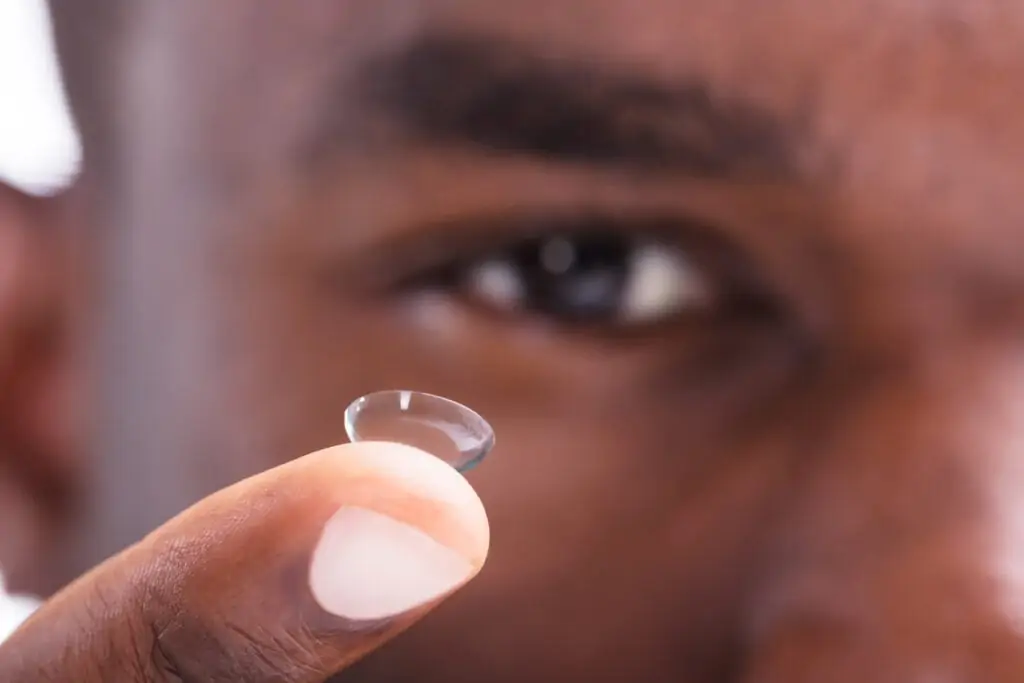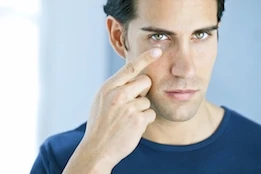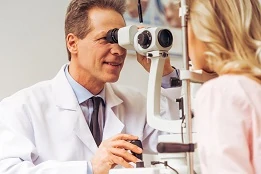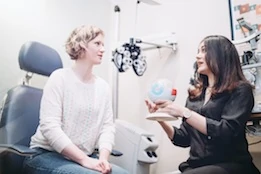Are Your Contact Lenses Uncomfortable?

Contact lenses are a very popular option for vision correction – particularly for those who can’t or don’t want to wear eyeglasses. The latest estimates place the number of contact lens wearers at about 30 million.
But for some, they may find that their contact lenses become uncomfortable over time. It may be that you used to be able to wear them morning to night. But then something changes and at some point, you start taking them out more and wearing them for short periods of time. The bottom line is your contact lenses have become irritating and aren’t that comfortable anymore.
More and more eye doctors are using the term “contact lens intolerant” to describe those contact lens wearers who are struggling with a variety of issues that make their contact lenses uncomfortable.
What is Contact Lens Intolerance
Basically, it is a collection of symptoms and experiences with wearing contact lenses that lead a person to stop wearing them – and usually over a long period of time. Each contact lens user has a different experience and a different level of tolerance for symptoms, but contact lens wearers generally report the following:
- Burning
- Stinging
- Grittiness
- Irritation
- Foreign body sensation (does it feel like there is something in your eye?)
- Dryness
- Eye redness
- Pain
- Swelling
- Infections
- Corneal Abrasions
- Corneal Ulcers
Understanding Your Symptoms
Symptoms like these, and others, can range from mild to severe. There are those who try a host of home remedies to try and “make it work” and avoid reaching out to their eye doctor. One common method is simply limiting the amount of time wearing contacts. Maybe fewer hours during the day. Maybe only every other day. Or, just on the weekends or when going out. Contact lenses become “special occasion” wear, which is not why most patients chose them in the first place.
While over-the-counter eye drops, warm compresses, and limiting the amount of time wearing contacts can offer some temporary relief, there is a very real danger to ignoring these symptoms. The fact is contact lenses by their very design limit the amount of oxygen to the cornea, the surface of the eye. Even the most diligent contact lens hygiene regime – the wear, care, and cleaning – can’t completely eliminate the risk posed by wearing contacts.
Red, irritated eyes, ongoing dry eye symptoms, pain, or swelling are not normal and shouldn’t be ignored. The best way to handle symptoms and prevent any real damage is to schedule an appointment with your eye doctor.
How to Talk to Your Eye Doctor About Contact Lens Intolerance
Start with making the appointment. It is important and eye care is part of caring for your health and wellbeing. Once you’ve got the appointment made, take the time to pay attention to your symptoms. As yourself a few questions and write down the answers, so you have notes you can speak from to help make your eye doctor appointment as productive as possible. Here are a few questions to get you in the right frame of mind:
How many hours a day are you able to wear your contacts comfortably?
What symptoms are you having?
How long have you been having these symptoms?
How often do you have the symptoms? Every day? Every once in a while? Several hours every day?
Are there specific environments or activities that trigger or contribute to your symptoms?
What are you doing to help manage your symptoms? Be sure to list any over-the-counter drops or pain medication you are using.
Also, take some time to write down a few questions to ask your eye doctor directly. This is particularly important if you don’t want to go back to wearing glasses full time. You want to make sure you are exploring the vision correction options available to you and what you need to do to protect the health of your eyes and vision. Here are a few suggestions:
Discussing Your Vision Correction Options
Are my eyes healthy enough to continue to wear contacts safely and comfortably?
If I can’t wear contacts, are there other vision correction options, like laser vision correction or implantable collamer lenses, I should consider?
Am I a good candidate for LASIK or other laser vision correction procedures?
After you have had your appointment with your eye doctor and have followed the recommendations for treating your contact lens intolerance symptoms, it’s time to reflect on your vision correction needs. Are there newer technology contact lenses to consider? Are contact lenses still a good option? Does your lifestyle require you to be free from glasses? Is laser vision correction an option? If laser vision correction is an option for your eyes and vision, you will be happy to learn that recent clinical data shows that former contact lens users were much happier with their vision after having LASIK and that their level of satisfaction with their vision increased over time. Contact lens intolerance may be your eyes’ way of telling you it is time to move on and find a vision correction option better suited to your vision and lifestyle.
If you are ready to take the next step, learn more about the procedures available today and find out what makes a good candidate for laser vision correction. Here you can learn about the special training and skills required to be a LASIK surgeon and find one in your area.




